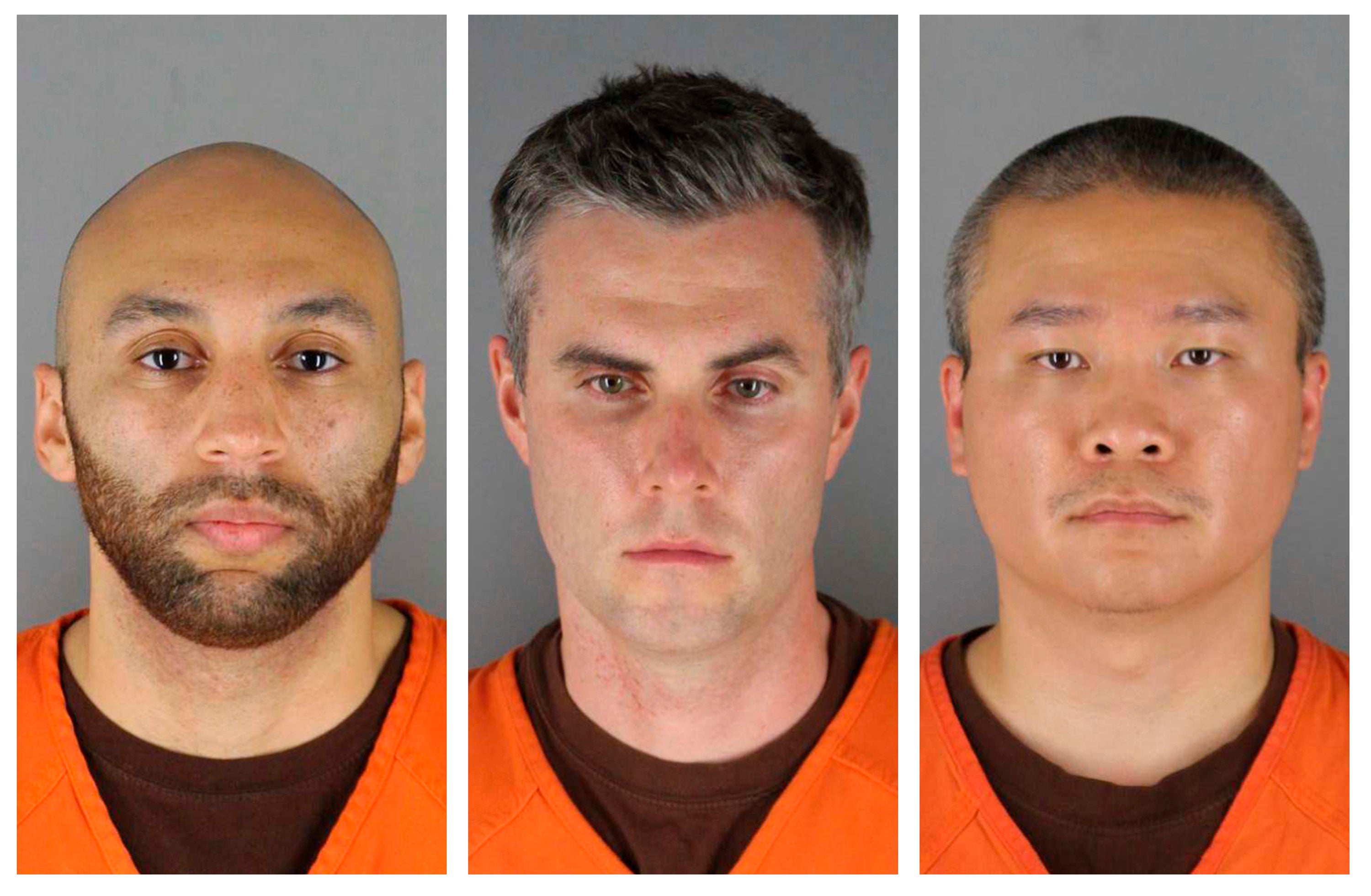EXPLAINER: Will Chauvin testify at trial of 3 other cops?
As the federal trial for three former Minneapolis officers charged with violating George Floyd’s civil rights is set to begin Monday, some wonder whether Derek Chauvin will take the stand

Your support helps us to tell the story
From reproductive rights to climate change to Big Tech, The Independent is on the ground when the story is developing. Whether it's investigating the financials of Elon Musk's pro-Trump PAC or producing our latest documentary, 'The A Word', which shines a light on the American women fighting for reproductive rights, we know how important it is to parse out the facts from the messaging.
At such a critical moment in US history, we need reporters on the ground. Your donation allows us to keep sending journalists to speak to both sides of the story.
The Independent is trusted by Americans across the entire political spectrum. And unlike many other quality news outlets, we choose not to lock Americans out of our reporting and analysis with paywalls. We believe quality journalism should be available to everyone, paid for by those who can afford it.
Your support makes all the difference.As the federal trial for three former Minneapolis officers charged with violating George Floyd’s civil rights is set to begin Monday, some wonder whether Derek Chauvin – the officer already convicted of Floyd’s murder – will take the stand. Many legal experts say they don’t anticipate that. If he does testify, he could face some hard questions.
WHAT IS THIS TRIAL ABOUT?
Tou Thao, Thomas Lane and J. Kueng are broadly charged in federal court with depriving Floyd of his civil rights while acting under government authority as Chauvin used his knee to pin the Black man to the street for 9½ minutes on May 25, 2020.
Kueng and Lane helped restrain the 46-year-old Floyd. Kueng knelt on Floyd’s back, and Lane held Floyd’s legs. Thao kept bystanders from intervening in the videotaped killing that triggered worldwide protests, violence and a reexamination of racism and policing.
The federal indictment alleges that Kueng, Lane and Thao willfully deprived Floyd of the right to be free from an officer’s deliberate indifference to his medical needs. Thao and Kueng also are charged with willfully violating Floyd’s right to be free from unreasonable seizure by not intervening.
DETAILS ABOUT CHAUVIN
Months after his conviction in state court, Chauvin pleaded guilty to a federal civil rights violation.
During his federal plea hearing, he admitted he knew what he did to Floyd was wrong and he had a “callous and wanton disregard” for Floyd’s life. The plea agreement also says Chauvin “was aware that Mr. Floyd not only stopped resisting, but also stopped talking, stopped moving, stopped breathing, and lost consciousness and a pulse.”
Chauvin did not testify in his state trial.
WILL HE TESTIFY NOW?
Legal experts who spoke to The Associated Press say it's possible, but probably not: The prosecutors don’t need his testimony because they have powerful video evidence, and defense attorneys likely don't want Chauvin in court.
“My guess is that neither party will call him,” said F. Clayton Tyler, a Minneapolis defense attorney not connected to the case. He said prosecutors may call Chauvin if their case is going poorly, but “you can imagine how the other attorneys are going to be able to jump on him. It could get ugly if he gets on the stand.”
Tyler said the defense won’t call Chauvin as a witness unless they know he’s going to testify in their favor.
“They’re going to point the finger at him anyway, without him being there," Tyler said, noting that Chauvin was the senior officer on the scene and that Lane and Kueng were rookies just a few days into their jobs as full-fledged officers.
IS HE REQUIRED TO TESTIFY?
Federal defendants sometimes agree to testify or offer “substantial assistance” to prosecutors in hopes of getting a reduced sentence. Nothing in Chauvin's plea deal or other public documents indicates an agreement like this was reached.
Chauvin’s attorney, Eric Nelson, declined to comment. Prosecutors are not commenting beyond the court filings.
ARE THERE ANY HINTS IN THE PLEA AGREEMENT?
Mark Osler, a former federal prosecutor and professor at the University of St. Thomas School of Law, said Chauvin’s plea agreement was actually crafted in a way to limit his usefulness to Kueng, Lane and Thao.
Chauvin’s agreement says he knew that officers — regardless of their rank — are trained to intervene if another officer is using inappropriate force, and that Chauvin didn’t threaten or force any of the three officers to disregard that duty.
The agreement also says that Chauvin did not observe Thao or Kueng do or say anything to try to get Chauvin to stop. It says Chauvin heard Lane ask twice whether Floyd should be rolled on his side, but that Chauvin “did not hear or observe Officer Lane press the point, and did not hear or observe Officer Lane say or do anything else to try to get Officer Kueng and the defendant off of Mr. Floyd.”
Osler said those details are unusual and “quite intentional.”
“There must be some fear that he would fall on his sword and say, `It was all on me, not these other guys,'” Osler said.
___
Find AP’s full coverage of the killing of George Floyd at: https://apnews.com/hub/death-of-george-floyd